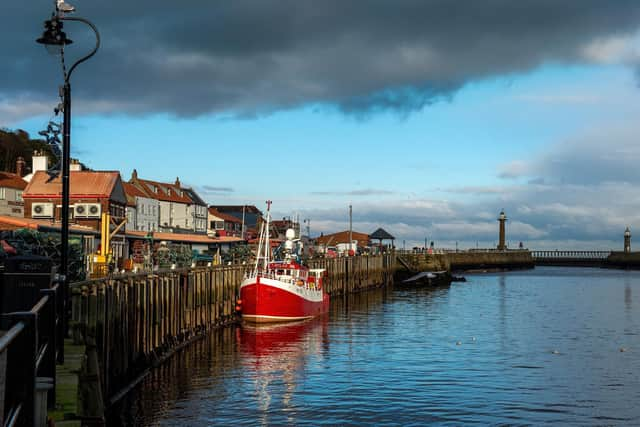Whitby: The fascinating facts and useful visitors' tips that only the locals know
Whitby is well-known for its connections to Bram Stoker’s Dracula, its choice of fish and chip shops and its famous 199 Steps up to Whitby Abbey.
But there are some other quirky facts that locals have shared with us - from how you really eat Botham's lemon buns to how you refer to locals who have 'seawater running through their blood'.
Botham's Lemon Buns


Advertisement
Hide AdAdvertisement
Hide AdElizabeth Botham began making Whitby lemon buns more than 150 years ago, and they are very similar to the iced bun with raisins in the middle. Her family's bakery is still trading in the town today.
But how you eat the buns is very important. Chef James Martin even said that people will know you’re a tourist if you get it wrong.
Teresa Tyram, whose husband bakes the famous sweet treat, said: “Locals rip them in half so the icing is in the middle, so you don’t get sticky fingers.”
The best fish and chip shops to go to
Manager of the Fish Box, George Briggs, 27, said it was thanks to their secret batter recipe that trade is still busy. Stuart Fusco who runs The Quayside also has his own secret recipe.
Advertisement
Hide AdAdvertisement
Hide AdHe added another interesting fact to the mix too: “Most of the cod and haddock isn’t from Whitby, it comes from Scotland or Iceland.”
Locals are called Codheads
This links to the history of fishing in the area. And those who are not born and bred in Whitby said that no matter how long they’ve lived there, they’ll never be a local.
“The locals have got seawater running through their blood,” said one runner on the Whitby Parkrun.
Whitby is also known for its own slang and accent, claimed Les Brown, 37, who has worked at the Dracula Experience for the past 24 years.
Advertisement
Hide AdAdvertisement
Hide AdTake a closer look inside St Mary’s Church and Whitby Abbey
Once they’ve climbed the famous steps, many people walk past St Mary’s Church and don’t look inside as they head to the abbey, explained one local.
But inside the church you’ll find enclosed pews you can open and go inside dating to the time when different families would have their own pew.
The date of Easter was decided at the Abbey
Taxi driver John Hartley, 62, explained the local lore, which has been confirmed by English Heritage.
Advertisement
Hide AdAdvertisement
Hide AdEnglish Heritage said: “The dates of our Easter holidays may seem hard to predict from year to year, but in 7th-century England things were even more confusing. There was no agreement among Christian groups on when to celebrate Easter, and it became the subject of heated discussion. At a landmark meeting known to us as the Synod of Whitby, Christian missionaries gathered at Whitby Abbey to put forward their respective arguments, and a formula was finally settled upon - the one that we still use today to determine the dates of Easter.”
“Whitby has this amazing community around it”
According to Stewart Wyeth, 43, who’s homeless and volunteers in the British Heart Foundation shop. He said that he’s lived all over the country and Whitby is by far the best place he’s lived in thanks to the local people who can’t do enough to help him.
